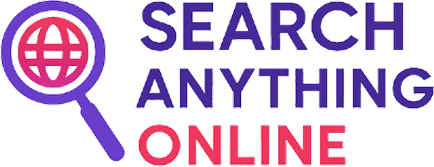
The Art of Finding Anything Online: Advanced Web Searching Techniques
In today's digital age, the ability to effectively search and find information online is a crucial skill. Whether you're a student, professional, or just someone curious about the world, mastering advanced web searching techniques can significantly enhance your ability to locate accurate and relevant information quickly and efficiently. In this article, we delve into the art of finding anything online.
Understanding the Basics of Search Engines
Before diving into advanced techniques, it's essential to understand how search engines work. Search engines like Google, Bing, and Yahoo use complex algorithms to scour the web and index content. This indexed content is then ranked based on relevance and quality to provide users with the best possible results.
The Role of Keywords
Keywords are the backbone of any search query. They are the words or phrases that you enter into a search engine to find information. To enhance your search results, choose specific and relevant keywords that closely relate to the information you seek.
Advanced Search Operators
Search operators are special commands that you can use in search engines to refine your search results. Here are some commonly used advanced search operators:
- Quotation Marks (" "): Use quotation marks to search for an exact phrase. For example, searching for "web searching techniques" will return results that include this specific phrase.
- Minus Sign (-): Use the minus sign to exclude certain words from your search. For example, "apple -fruit" will exclude results related to the fruit apple.
- Site: Operator: Use this operator to search within a specific website. For instance, "site:wikipedia.org search techniques" limits results to Wikipedia.
- Filetype: Operator: This operator helps you find specific types of files, such as PDFs. For example, "filetype:pdf web search techniques" will return PDF documents about web search techniques.
Utilizing Google Tools
Google offers several tools that can help refine and enhance your search capabilities:
- Google Scholar: Ideal for academic research, Google Scholar provides access to scholarly articles, theses, and books.
- Google Trends: Use this tool to explore trending topics and the popularity of search terms over time.
- Google Alerts: Set up alerts for specific keywords to receive email notifications when new content is published online.
Evaluating Sources for Credibility
With the abundance of information available online, evaluating the credibility of sources is paramount. Consider the following factors:
- Author's Expertise: Check the author's credentials and expertise in the subject matter.
- Publication Date: Ensure the information is current and relevant.
- Source Reputation: Prefer reputable websites known for accurate and reliable content.
Conclusion
Mastering the art of finding anything online requires a combination of understanding search engine algorithms, using advanced search operators, and evaluating source credibility. By implementing these techniques, you can enhance your online research skills and access the wealth of information available on the internet with greater ease and efficiency. Start experimenting with these strategies today and unlock a world of knowledge at your fingertips.
Related Articles





